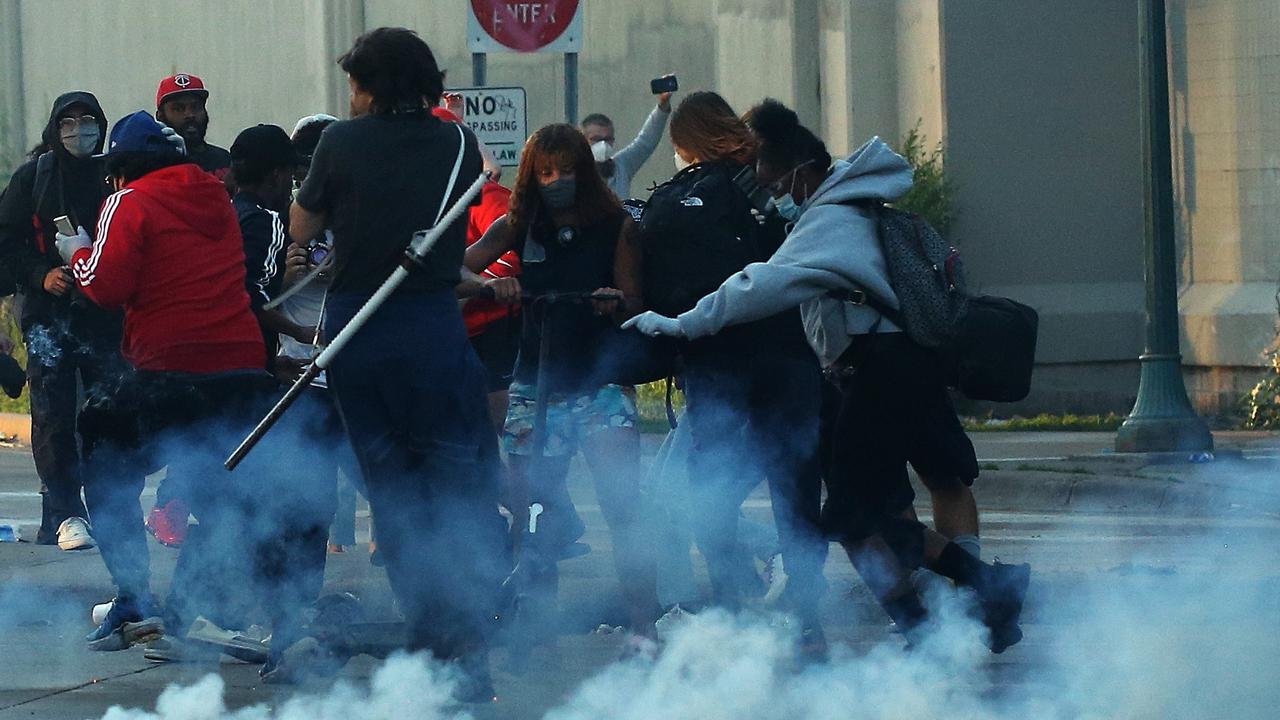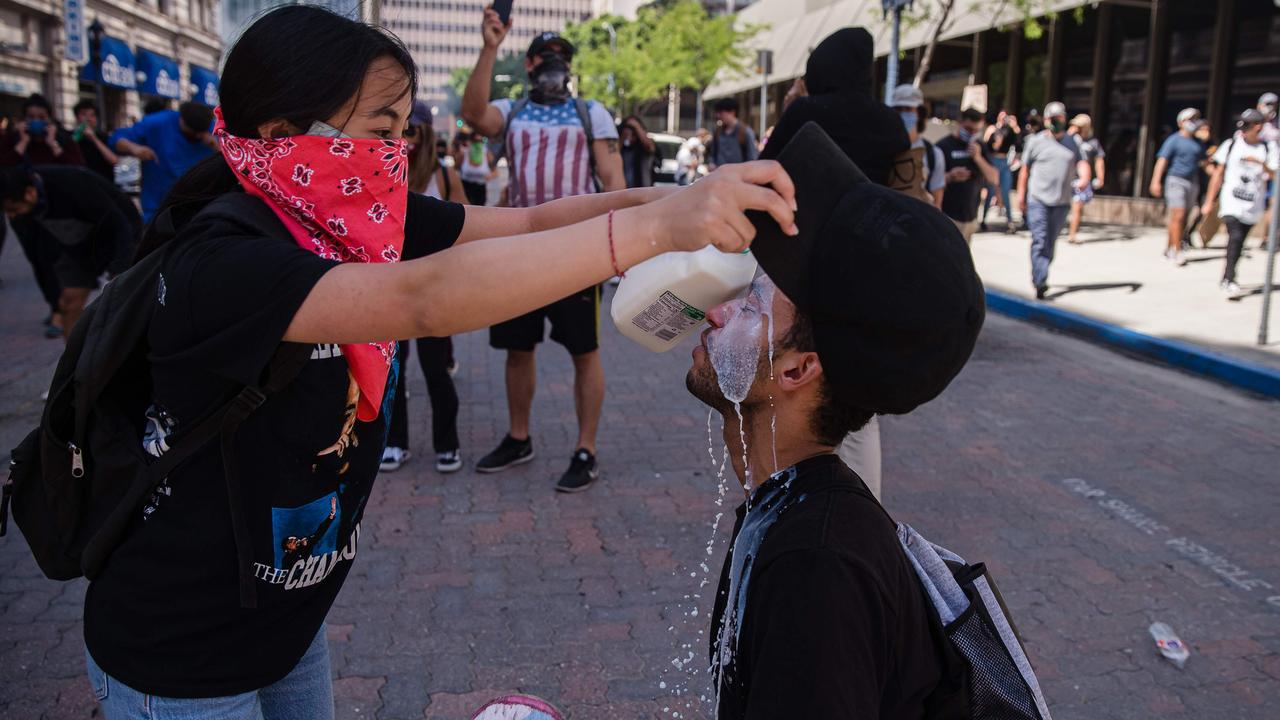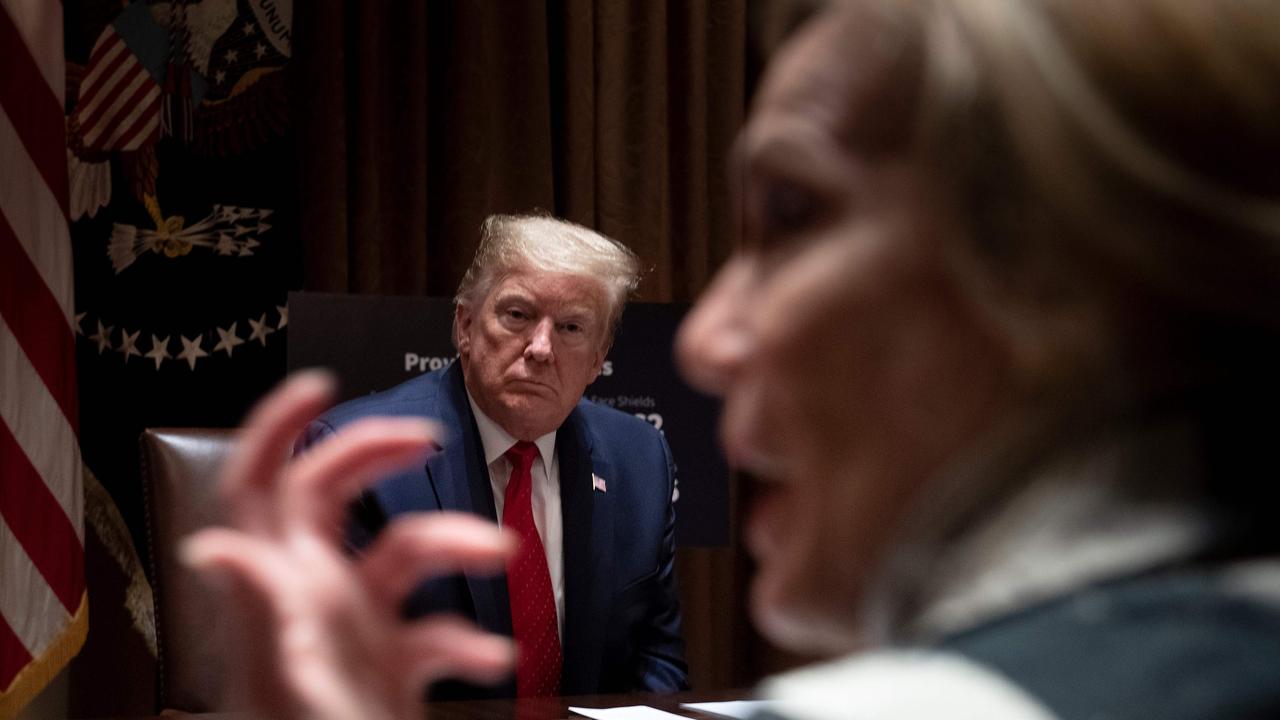Coronavirus US: COVID-19 cases spike in 20 states
COVID-19 is on the rise again in America, with some states recording their highest single-day figures since the pandemic began.

COVID-19 is on the rise again in the United States.
Arizona, North Carolina and California are seeing enormous spikes as the virus finds fertile conditions after lockdowns were lifted early.
Now they’re nervously awaiting the outcome of intense protests.
More than 20 US states have registered an uptick in diagnoses in the past week.
But state and federal governments continue to lift quarantine restrictions. All regions began reactivating their economies – to varying degrees – in late May.
Two weeks later, it’s evident fears of a pandemic rebound were well-founded.
California confirmed 3593 news cases on Friday. The count there has been trending upwards by more than 2000 every day since May 25.
North Carolina counted 1370 new cases on Saturday – its highest single-day figure. The previous high was set the day before with 1289 diagnosed.
Arizona’s highest single-day increase also came at the weekend, with 1579 new cases on Saturday. The number was a similar 1438 on Sunday.
RELATED: Follow the latest coronavirus updates
RELATED: United States is poised to explode

Alaska, Arkansas, Florida, Hawaii, Idaho, Kentucky, Michigan, Missouri, Montana, New Mexico, Oregon, South Carolina, Texas, Tennessee, Utah, Washington and Vermont have also reported renewed rises.
And most of these cases were contracted before enormous crowds erupted on the nation’s streets to protest the brutal police killing of unarmed black man George Floyd.
More than 1.9 million cases have been recorded in the US since the pandemic began. More than 110,500 have died. And that toll can only now rise.
OUTBREAK
Arizona’s former director of health, Will Humble, told local media the revival of the pandemic was an inevitable outcome of policy.
In the US, the emphasis has been on the economic impact of the virus. Not that of health.
“What we see in the data is pretty predictable,” he told Fox 10 Phoenix.
“I’d expect to continue to see an increase in cases compared to where we were in the middle of May, because we are not using the same intervention, the stay-at-home order, the distancing, and people are getting back to work.”
The US has been unwilling to enforce – and endure – the kind of successful lockdowns deployed by public health experts in Europe, Australia and New Zealand.
As a result, the pandemic has pushed deep into the American heartland.
RELATED: State where lockdowns aren’t working

Oregon’s health department attributed its spike to fresh workplace outbreaks in conjunction with improved contact tracing and expanded testing.
Its businesses, bars, clubs and gyms reopened on May 15. The largest cluster of new cases – 65 – is linked to a single business.
But Americans are back in the streets. Not for work. Not for play. But in protest.
Kilometres-long crowds have thronged the commercial hearts of the nation’s largest cities.
And the clouds of pepper and other irritant sprays have been priming crowds to transmit the virus, says US COVID-19 response spokesman Anthony Fauci.
The infectious disease expert said in a radio interview that the streaming eyes and convulsively coughing lungs of tightly-packed protesters were a “perfect set-up” for an explosion in new cases.
But the Trump administration is closing down its Coronavirus Task Force. Dr Fauci is being sent back to his day job.
Political pressure continues to trump medical advice.
RELATED: US protesters caught spreading virus

QUARANTINE FATIGUE
Social distancing is hard. And enduring it only gets harder with time.
The economic cost is high. And the severity of the impact gets worse with time.
Which are both reasons why ‘going in hard and early’ appears to have paid off for places such as New Zealand.
According to British research, compliance with lockdown conditions began to waver after about a month. But Britain also waited a full two weeks after a pandemic was declared internationally, allowing the virus to spread.
The lockdown, while late, has since had significant success in arresting its progress.
Now voices there are also urging an early lifting of restrictions.
“Governments, as well as the public, are now keen to start removing the restrictions and return to normal life,” writes professor of mathematics at the University of Strathclyde, Adam Kleczkowsi.
“With the relaxation of the lockdown rules, warnings are being sounded about a possible resurgence of COVID-19 cases – a so-called second wave.”
RELATED: China’s sinister reaction to United States
No nation is yet immune, he says. And a vaccine remains well over the horizon.
“As long as there are susceptible and infected people in the population, the virus can spread. Evidence is accumulating that the first wave of the epidemic resulted in only limited immunity, well below herd immunity levels. There are also pockets of a population in which the virus not only survives but continues to spread.”
But nations with early success – such as Australia – face their own challenges.
“We are predisposed to thinking the virus will not affect us, and the more successful a virus containment strategy is, the more likely we are to believe that we are immune,” says University of East Anglia researcher Sheheryar Banuri.
Handwashing and social distancing remain important habits to prevent unexpected flare-up.
“For people to comply, they need to believe that the risk of not doing so is high – especially with measures that demand a high degree of effort,” Banuri says.
Jamie Seidel is a freelance writer | @JamieSeidel




